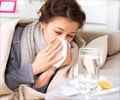Desloratadine Medication Information
Discover comprehensive details about Desloratadine, including its pronunciation, uses, dosage instructions, indications, and guidelines on how and when to take it or avoid it.
The updated prescription information covers potential side effects, precautions, warnings, and storage recommendations.
Additionally, explore the Desloratadine brands available in India and internationally, along with pricing information. For personalized advice, consult your healthcare provider.
Generic Name : Desloratadine Pronunciation : DES-lor-A-ta-deen ICD Code : Y55.5 Therapeutic Classification : Antihistamines And DecongestantsBrand Names or Trade Names of Desloratadine
India :
International :
Clarinex, Reditabs
Why is Desloratadine Prescribed? (Indications)
This medication is an antihistamine, prescribed for allergic reactions in patients 2 years of age and older. It blocks histamine's action, which reduces allergy symptoms.When should Desloratadine not be taken? (Contraindications)
Hypersensitivity.What is the dosage of Desloratadine?
Adult: PO- The recommended dose is 5 mg once daily.Children 6 to 11 years of age: Syrup- The recommended dose is 1 teaspoonful (2.5 mg in 5 mL) once daily. Tablet- The recommended dose is one 2.5 mg tablet once daily.
Children 12 months to 5 years of age: The recommended dose is 1/2 teaspoonful (1.25 mg in 2.5 mL) once daily.
Children 6 to 11 months of age: The recommended dose is 2 mL (1.0 mg) once daily.
How should Desloratadine be taken?
It comes as a tablet to take by mouth, with or without food.What are the warnings and precautions for Desloratadine?
• Caution should be exercised in patients with history of kidney or liver problems, any allergy, who are taking other medications, children, during pregnancy and breastfeeding.• It may cause dizziness, do not drive a car or operate machinery while taking this medication.
What are the side effects of Desloratadine?
Adult and Adolescents-Most Common- Inflammation of pharynx, dry mouth, muscle pain, drowsiness, painful menstrual periods and hives.
Heart- Fast heart rate and palpitations.
Miscellaneous- Headache, nausea, fatigue, dizziness, indigestion and elevated liver enzyme levels.
Child-
Most Common- Urinary tract infection and infectious diseases like chickenpox.
Respiratory- Respiratory tract infection, nosebleed and runny nose.
Gastrointestinal- Diarrhea, vomiting and loss of appetite.
Miscellaneous- Rash, redness of skin, ear infection and sleeplessness.









